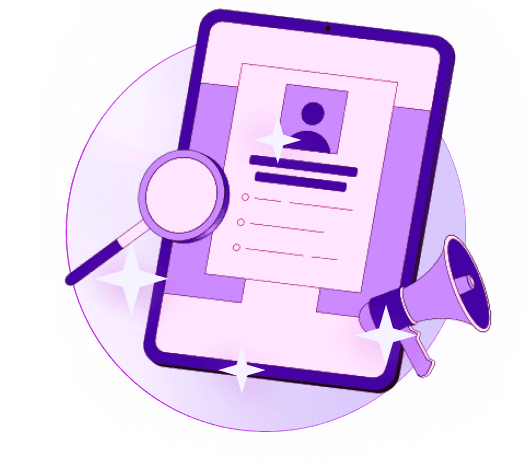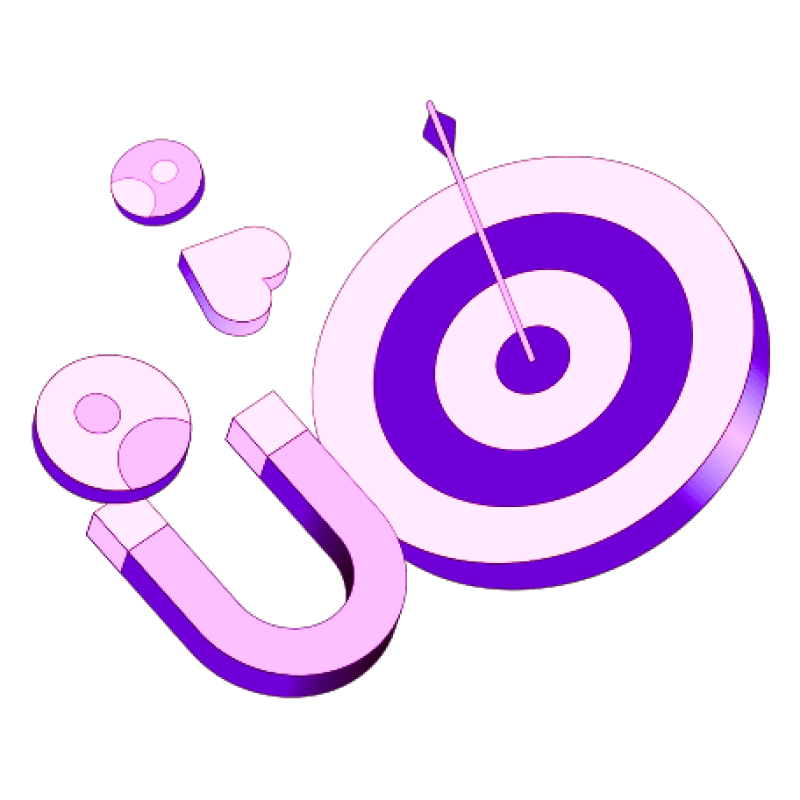Blogs
Articles

How AI in B2B Sales Is Transforming Sales Strategies in 2025
AI in B2B sales has already changed the way sales teams work today. Sales professionals dedicate just 25% of their time to actual customer interactions. They spend their remaining hours on administrative tasks and preparation.
This piece will show you how AI sales strategies are changing the B2B world. You'll learn about everything from lead generation to post-sale engagement. We'll look at real applications, key use cases, and show you how to create your own AI-powered sales system that delivers clear results.
How is AI used in B2B sales?
AI has revolutionized how B2B companies spot opportunities and streamline their sales processes. McKinsey reports that companies now utilize AI to spot promising opportunities beyond their main markets. The technology analyzes vast datasets to suggest untapped markets, new verticals, and product possibilities.
Companies can now create customer microsegments with machine learning. This happens by exploring customer attributes and buying patterns, which results in customized value propositions. The technology helps retain customers by analyzing pricing and service factors to predict customer churn in a variety of markets.
Business leaders have jumped on board with this technology. 21% report full enterprise-wide adoption of AI in B2B buying and selling, and 22% have tested specific use cases. The results speak for themselves - 85% of AI users are thrilled about its potential.
Sales and marketing teams showed the biggest increase in AI adoption from 2023 to 2024. HubSpot's data reveals that AI adoption among sales teams has reached 43% in 2024, up 9% from 2023.
What is the AI tool for B2B?
AI sales tools are software solutions that tap into artificial intelligence, machine learning, and data analysis to automate sales cycle tasks. These solutions help teams find leads, customize outreach, analyze calls and forecast revenue. This makes sales teams work more efficiently while cutting down on manual tasks.
The current challenges in B2B sales
B2B sales teams face many challenges in today's ever-changing business environment. Buyer indecision has become the biggest problem that affects sales cycles, stalls deals and drains revenue. Sales cycles now take much longer to complete, and 58% of professionals agree with this trend.
The complexity of B2B deals keeps growing. Each transaction now needs 13 decision-makers on average. This makes the sales experience more challenging, especially when you have stakeholders with different roles and responsibilities to convince.
Sales teams struggle with data overload as they try to identify qualified leads from massive information streams. Sales representatives waste 64.3% of their time on tasks that don't involve selling. This limits how effective they can be.
Some good news exists amid these challenges. Companies that use highly rated sales training programs have seen their revenue grow by up to 106.7%. This shows clear paths to improvement even as these challenges continue.
How AI is being applied across the sales funnel?
AI creates measurable effects at every stage of the B2B sales process. The technology transforms how sales teams work, right from the first contact through ongoing relationship management.
AI in lead generation and qualification
AI-powered lead generation simplifies prospecting processes while sales teams retain control of relationships that move deals forward. Companies that use AI-powered lead scoring systems see better conversion rates. The technology identifies promising accounts by analyzing past success patterns and live intent data. AI evaluates demographic, firmographic, and behavioral data to rank prospects quickly instead of manual qualification.
AI for personalized outreach and follow-ups
Messages tailored to each recipient get 29% higher open rates and 41% higher click-through rates. AI creates customized messages based on what prospects need, with personalized subject lines that improve reply rates by 30.5%. The technology also picks the best times to send emails, which boosts open rates by 18-25%.
AI in forecasting and pipeline management
AI-powered sales forecasting reaches 79% accuracy while traditional methods achieve only 51%. AI tools analyze detailed data to spot successful strategies and new trends. They provide live insights when market conditions shift.
AI for post-sale engagement and retention
AI does more than help close deals. The technology tracks signals like how often customers use products and their feedback in support tickets. This helps teams spot expansion opportunities or churn risks early enough to take action.
What are the top AI use cases?
Sales organizations are implementing five powerful AI applications that deliver measurable outcomes:
AI-powered lead scoring and routing
AI examines firmographic data, website behavior, and engagement patterns to identify prospects who are most likely to convert. Companies that use predictive lead scoring find that all but one of these leads in their top 20% segment produce 60% of quarterly revenue. These systems help sales teams concentrate on valuable leads while they automatically route based on territory, expertise, and current workload.
Generative AI for content and messaging
Generative AI solves the "blank page problem" in sales content creation. Currently, 83% of marketers support this technology, and teams save more than 5 hours each week. Sales teams can now create tailored content for specific personas, industries, and buying stages at scale.
AI agents for meeting prep and CRM updates
Teams using AI agents prepare for meetings 33% faster and achieve 10% higher win rates. These tools automatically capture and sync customer information from emails and calendars to keep CRM records current without manual data entry.
Real-time coaching and conversation intelligence
AI sales coaching provides guidance during calls and identifies patterns in speech, sentiment, and objection handling. The tools give immediate feedback about tone, clarity, empathy, and sales techniques.
Predictive analytics for sales forecasting
AI-driven forecasting reaches 79% accuracy compared to 51% with traditional methods. Ready to change your sales strategy with these AI capabilities? Your team can focus on selling with the right tools instead of handling administrative tasks.
How to build a scalable AI sales strategy?
B2B sales needs methodical planning to build an AI strategic framework instead of rushing into technology adoption. Research by McKinsey reveals that companies growing faster invest heavily in digital-led transformations and AI to boost sales productivity.
Start with clear goals and pilot use cases
Your original objectives should define what AI needs to accomplish—such as boosting lead conversions by 25% or reducing your sales cycle. SMART goals (specific, measurable, achievable, relevant, time-bound) will guide your AI implementation effectively. Your team can then launch targeted pilot programs to test AI tools in controlled environments before rolling out completely.
Choose tools that integrate with your stack
The right AI solutions should blend naturally with your existing CRM and tech stack. Companies lose 20-30% in annual revenue through operational inefficiencies when their systems don't connect properly. Your priority should be tools with APIs that enable immediate workflow compression without creating new data silos.
Train teams and encourage adoption
Success depends on customized change management plans. Your team needs to know that AI works as a force multiplier, not a job replacement. Most sales teams show 70% resistance when new technologies arrive. The solution lies in detailed training and rewards for proactive AI use.
Clean and govern your sales data
AI performance depends directly on data quality—businesses lose an average of $12.90 million annually from poor data. A resilient data governance system needs standardized formats, validation processes, and regular quality checks. Tools like Persana focus on data governance while providing AI-powered sales insights.
Secure executive sponsorship and alignment
Executive support drives AI implementation to success. Steering committees help accelerate transformation. Your organization needs performance management with relevant KPIs, and budgets and seller incentives that match your AI transformation goals.
Conclusion
AI is changing the game for B2B sales as we look toward 2025. The numbers tell an amazing story - companies using AI report 50% more leads, 60-70% shorter call times, and up to 60% cost savings. These results show why digital channels will handle 80% of B2B sales interactions soon.
AI's effects touch every part of the sales process. Sales professionals can now spend more time selling instead of doing paperwork, thanks to AI's ability to spot opportunities and handle administrative work. This explains why AI adoption in sales teams grew to 43% in 2024 - up 9% from last year.
A successful sales ai news needs careful planning rather than rushing to grab new tech. Companies should set clear goals first. They need tools that work with their current systems. Teams need good training. Data must stay clean. Executive support is crucial. Following these steps helps organizations grow steadily while others struggle with scattered approaches.
Tomorrow's successful sales teams will welcome AI as a powerful ally, not a replacement for human skills. AI handles the routine work so salespeople can build relationships and solve complex problems. This blend of human insight and machine smarts creates an edge that will set successful B2B sales organizations apart.
FAQ
Will AI take over B2B sales?
AI adoption has sparked intense debate about B2B sales professionals' future. Notwithstanding that, evidence shows that AI will augment rather than replace human salespeople. McKinsey research shows AI adoption will happen inevitably, yet it will become a "table stakes" technology that works alongside human expertise.
Companies that use both human and automated systems have seen profits jump by more than 10%. Gartner predicts digital channels will handle over 80% of sales activities by 2025, though human salespeople will still play a crucial role in complex deals.
Buyers themselves want human interaction - 86% prefer to talk to a real person during their buying trip. Complex B2B sales need detailed discussions and relationship-building that AI cannot match.
Which B2B sales platform is powered by AI?
Many B2B sales platforms exploit AI capabilities in 2025. Momentum leads the pack as a platform built for AI-powered revenue orchestration. It works with Salesforce and Slack to boost existing tools. Salesforce Einstein, HubSpot, and Cognism dominate the market. Cognism's AI Search lets users search databases with natural language prompts.
Sales automation market grows faster globally. Projections show an increase from $7.80 billion in 2019 to $16.00 billion by 2025. Companies that use these AI-powered platforms exceed sales targets 2.5 times more often. AI increases revenue by up to 15% and sales ROI jumps 10-20%.

Create Your Free Persana Account Today
Join 5000+ GTM leaders who are using Persana for their outbound needs.
How Persana increases your sales results
One of the most effective ways to ensure sales cycle consistency is by using AI-driven automation. A solution like Persana, and its AI SDR - Nia, helps you streamline significant parts of your sales process, including prospecting, outreach personalization, and follow-up.



